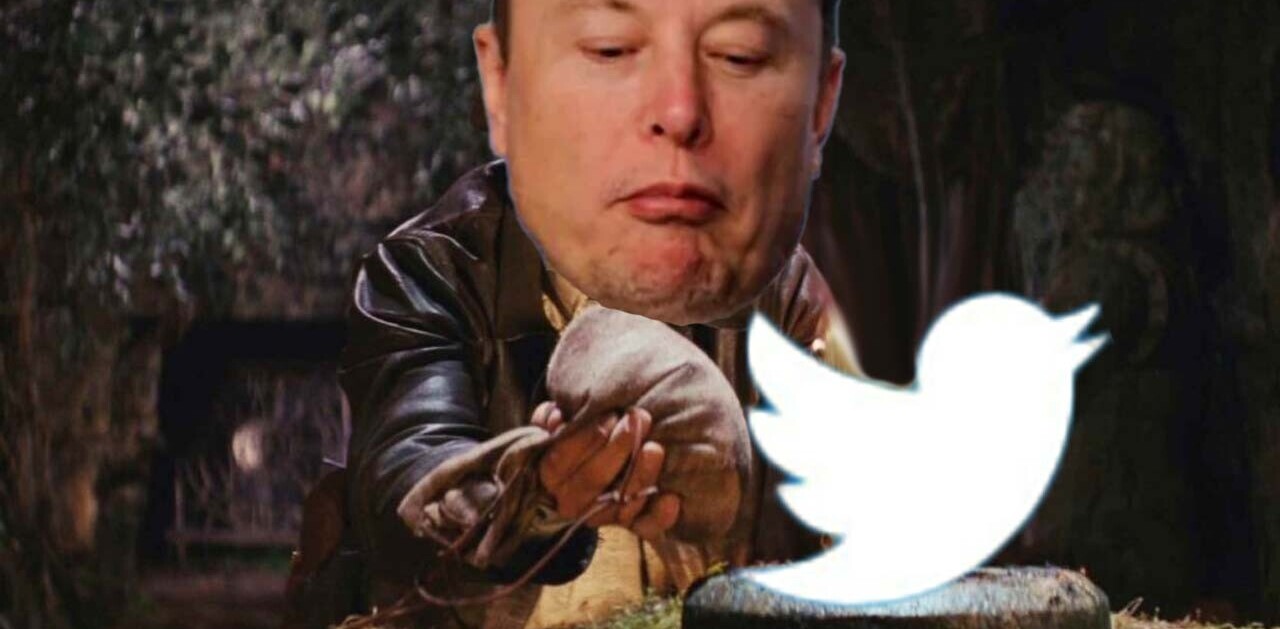
As creator of what was once one of the world’s most popular social networks, Michael Birch knows a thing or two about running a digital enterprise. But what exactly do you do following a near billion-dollar exit? The Next Web caught up with the Bebo founder this week to find out.
Bebo: an overview
Michael Birch launched Bebo with his wife Xochi in January 2005, whilst living in San Francisco. At its peak, Bebo was one of the top websites in the UK, overtaking MySpace in 2007 with an impressive – at the time – 10.6m unique views. Today, however, is a different story. Facebook is the preeminent platform for social media lovers in the UK and, it seems, nearly every other country, a few notable exceptions aside.
Given that you rarely hear about Bebo these days, you could be forgiven for thinking that the social network had ceased to be, but that isn’t so. Michael and Xochi Birch sold Bebo to AOL in 2008 for a whopping $850m, and AOL in turn shifted it on two years later for around $10m to an investor group. I’m no financial analyst, but that wasn’t good business.
Today, Bebo still enjoys reasonable levels of traffic. According to Alexa ranking figures, it’s still one of the top 600 websites in the UK, whilst it’s in the top 2,000 worldwide. But there’s little question Bebo isn’t what it once was. So has Michael Birch had enough of social networks since he cashed-in on his Bebo baby? Apparently not.
Along with his wife Xochi, he founded Monkey Inferno a so-called ‘personal incubator’ (PINC), a breeding ground for cool Internet projects that happen to take Michael and Xochi’s fancy. And one of these projects is Jolitics, a political social network that Birch says he hopes will breathe new life into politics online.
Jolitics: Bebo…but for politics
“Jolitics is a Political Networking site designed to encourage open constructive political debate. Jolitics aims to avoid the intimidating, and dare we say slightly boring aspects of politics. Everyone can create and vote on political proposals and campaign their government to make changes.” [Monkey Inferno, 2010]
In a nutshell, Jolitics members – ‘joliticians’, as Birch likes to call them – can join debates on current political issues and nominate other users to represent them, those who they consider to be more knowledgeable on a particular subject. Users can also initiate their own proposals and try and garner support from other users, or they can vote themselves on issues raised by other members. When enough consensus is gathered, Jolitics has a direct email button that sends the outcome of the result to a local MP in a particular constituency:
Jolitics officially launched in the UK in March 2011, following an extended trial period in Ireland. At the time of writing, it’s only available for UK and Irish users and Birch told me that it has around 2,000 signed-up users to date. Monkey Inferno has allocated two full-time people to the project, though with16 employees working in the incubator, there can be up to 4 people working on it, depending on the current requirements.
So, how, why and when was Jolitics born? “I conceived of Jolitics before even Bebo, probably around 2004”, says Birch. “The idea has evolved over time, but actual work on the platform didn’t start until early 2010.”
Jolitics and the vocal minority
As with any new business concept, it has to solve a problem. And in the case of Jolitics, the main problem it’s striving to circumvent is the vocal minority – those who petition and make their voice heard over and above everyone else, but who don’t represent the views of everyone.
Birch believes online politics should be operated by a team without a political agenda – it should be non-partisan. Discussion, he says, requires balanced debate and there is a real need to hear ALL sides of the story. Voting is central to garnering consensus and everyone must be represented. The problem with politics online at the moment is that it’s a vehicle for the creators’ own political agenda, it’s based around party politics, it’s forum or petition based. And to reiterate a key point here, the vocal minorities often rule.
So was there a pivotal moment that eventually made Birch run with Jolitics?
“There wasn’t one particular event that made me launch Jolitics”, says Birch. “But in hearing about petitions to stop things, I realized they’re not representative and it’s amazing what a minority of well organized people can achieve. You can see it online on the likes of Facebook.”
It seems to me that one of the reasons why vocal minorities often get their way is due to apathy and indifference from others. So how exactly will Jolitics garner a wider spread of opinion, when it’s likely that a high percentage of the population simply won’t be bothered about a certain cause?
“Well, the ultimate goal would be to replicate the general election in terms of turnout”, says Birch. “In effect, everyone becomes a politician in their own right, and campaigns to get votes. Of course there will still be apathy though.”
Proposals, not party politics
But Birch is no political pontificator. “I’m not super political myself. I do get frustrated by bureaucracy, but I often don’t have the patience to fight the battles,” says Birch. “That’s not to say I’m not politically opinionated. I’ll turn out and vote at elections, and lend my support to certain things. But I’m not an extremist. I have voted for the Green party before, but I can swing left or right. I try to be very open in my politics.”
It seems that a central component to Jolitics is the focus on individual proposals rather than the traditional party approach, and this could be a major appeal for many. The underlying ethos is that typically ‘liberal’ people may hold certain conservative values, and vice versa across the political spectrum.
“I get frustrated with the party system”, says Birch. “So many people just declare what they are, and there’s a pressure to ‘tow the party line’ in political circles. It would be good to see more free-thinkers. For me, it’s more about individual proposals.”
How will Jolitics fit into the broader social sphere? And isn’t Jolitics just a souped up Facebook that specializes in voting and opinion polls?
“Facebook has been quite successful in terms of getting people politically motivated,” says Birch, “there are polls and petitions that can have a tendency to go viral. But it still suffers from petition-based problems that attract the vocal minority.”
MP engagement
What about the MPs – Jolitics directs all these votes to local politicians, will they mind being bombarded with poll after poll? They shouldn’t have a problem with it, given that they’re public servants and their email addresses are in the public domain. But I’m curious as to whether many MPs have openly endorsed the social network and what the overall feedback has been like so far.
“I’ve spoken with a few politicians before, and the impression I get is that the government is right behind any systems that crowdsource public opinion. Politicians will likely take something seriously if others are taking it seriously. I’ve spoken with a few politicians from the main parties, and it has been positive.”
Monetizing politics
Moving on, you may be wondering what the business model here is. Surely Jolitics isn’t the sort of platform that would lend itself to drawing in big bucks. It’s a bridge between the public and public servants, so how can that be monetized?
“My main priority with this project is to reinvigorate politics. I always love consumer Internet projects rather than b2b, I get a real sense of satisfaction and a buzz when they start seeding. This is different to Bebo, Jolitics is about making social change. The consequences of this succeeding is far greater than anything Bebo could’ve achieved.”
So how will Jolitics make money?
“Well, I can’t bankroll it forever, but money isn’t the motivation,” says Birch. “We’ve talked about potential ways to cover the costs, such as sponsorship, but we’ve not seriously looked into the options yet, that’s for later. I originally thought about doing this as a non-profit, as it would make it seem more pure, there would be no questions about motives or anything like that. However, it’s more restrictive as a non-profit, you need to fulfill certain conditions, have a board and other things. It’s much easier to set things up as a normal company.”
Michael Birch and Bebo
So given Michael Birch’s track record in the social sphere, he’s obviously active on all of them, right?
“I’m not active on Bebo. I don’t actually use social networks all that much, I use Facebook a little bit, more as a glorified contact book. I’ve never been into blogging or anything. I’m more of a consumer of content.”
With Jolitics still finding its feet in the social media sphere, I thought it would be interesting to take a look back at Bebo, the motivations behind its sale and whether Facebook’s meteoric growth was a major factor in the sale.
“Yeah, that was a key factor in selling. We felt Facebook had too much momentum, it would be too difficult and we would always be playing catch up. Despite all that, we actually moved ahead of Facebook in the UK and in New Zealand, but not in the US.”
Despite Birch selling Bebo to AOL in 2008, he actually bought back a little piece of Bebo last year, after AOL had sold up.
“I’m a minority holder. I have some input, but not as much as a lot of people say. I didn’t want to be the guy running it again, and I have no intention of buying it back. That would be going back in time.”
So as an adviser to the company, does Birch feel a little strange about working again on a platform he founded?
“It’s maybe a little weird, and there’s a little nostalgia in there,” he says. “But there’s a lot of value I can add, because I was at Bebo at the start, I can feed in a lot of the visions we had through its successful years. A lot of that initial knowledge has gone now.”
Whilst it’s unlikely Bebo will ever gain ground on the dominant social networks out there, does Birch think Facebook will ever be usurped as the number one social platform?
“I think someone will catch up with them, whether it’s in our lifetime I can’t say,” says Birch. “But they won’t catch up in the sense that a new Facebook will come along, they’ll have to approach it from a totally different angle and out-flank them. Twitter, in some ways, has managed to out-flank Facebook. It’s different, and that’s why it works. If it happens again, it’ll have to be something unique.”
And what about AOL, jumping ship with such a massive loss so soon after buying Bebo?
“AOL gave up on it pretty quickly, they really didn’t give it a fighting chance, so it’s hard to know how much success they would’ve had with it. Social networking isn’t its forte, it’s not what they do.”
Looking to the future…
So what now for Michael and Xochi Birch – are there any ideas bubbling away that they’ve never quite gotten ‘round to working on?
“We wanted to do lots of different ideas, and that’s what Monkey Inferno is all about”, he says. “The idea is to have 5 on the go at once. We currently have 4. We have some high-level ideas, areas we’d like to start prototyping with and see what evolves. They’re all fairly focussed on consumer Internet ideas, because that’s what we enjoy doing. I think we’ll do a lot more smartphone focussed stuff.”
As for the four projects currently being worked on, in addition to Jolitics there is Zuno, a sort of reinvention of Birthday Alarm, the first successful site created by Michael and Xochi Birch. Zuno is how Birthday Alarm might’ve looked had it been launched today. “It’s a super simple greeting card site which plugs very neatly into Facebook and runs as both an iPhone app and a website, with all the functionality available on both.”
And then there’s Water Forward, which will be a non-profit website which aims to develop as a way to support charity: water, an initiative that Michael Birch supports.
“Water Forward is another fundraising idea aimed at being viral,” says Birch, “but I can’t say much more on that at the moment. We’re in the final stages of stress testing it, and we’ll be launching it in July. Private companies are raising billions online, so why can’t charities do the same?”
And with one more project in stealth mode, it’s going to be a busy year for everyone at Monkey Inferno. Meanwhile, whilst Jolitics is restricted to the UK and Ireland at present, there is a longer term goal of making the platform available to other countries, so keep your eyes peeled. It could be the shot in the arm that politics sorely needs.
Get the TNW newsletter
Get the most important tech news in your inbox each week.






